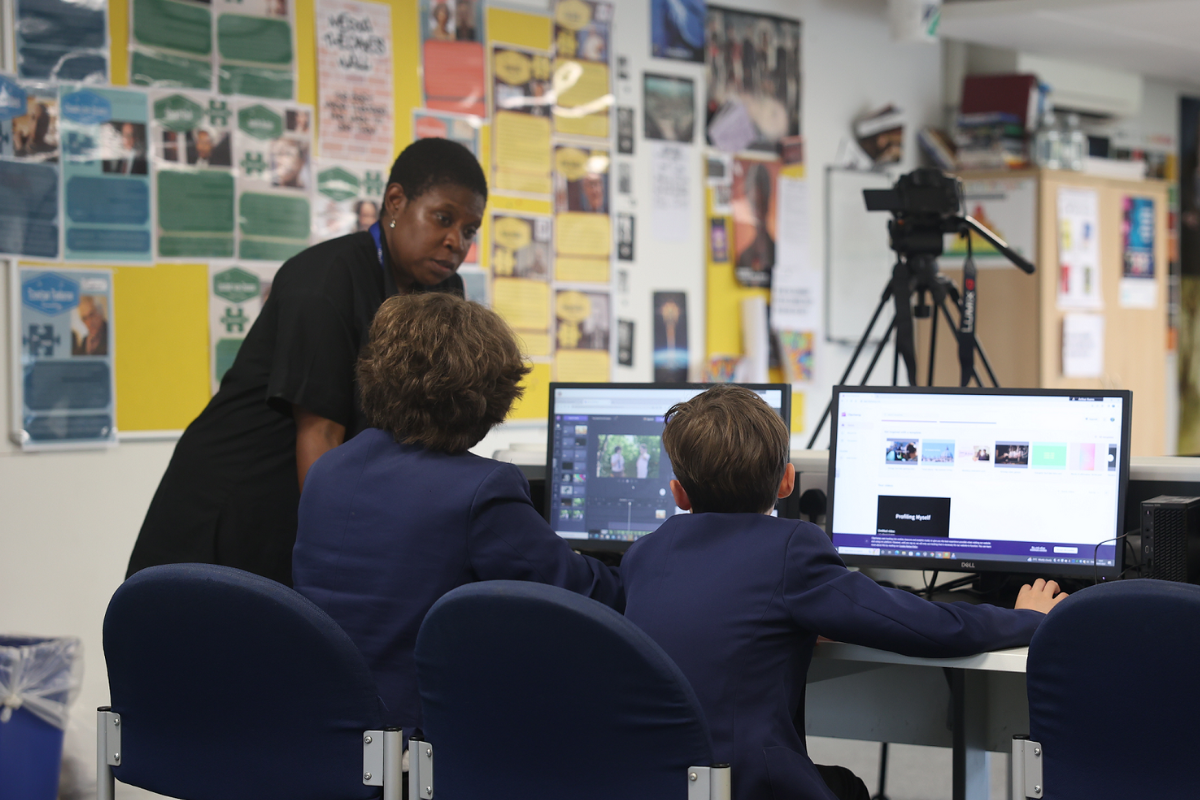
Innovate Dunraven School
Photo: Aaron Imuere
Young Vic arts education scheme helps ‘plug gaps’ in schools
Young Vic's Innovate programme embedded six artists into two local schools to help teachers deliver creative activities as part of the core curriculum.
A project led by Young Vic Theatre that introduced creative activities into non-arts subjects at local schools resulted in increased student confidence and participation, researcher have found.
A report evaluating the project, which took place between September 2021 and July 2023, also found that using the arts to teach subjects such as maths, history, and sciences resulted in “deeper student reflection and enhanced enjoyment of learning”. There were also improvements in teacher confidence and professional development, as the programme helped to “plug gaps” in creative expertise and capacity.
The Innovate scheme was formed in response to challenges faced by schools following the pandemic. It aimed to implement recommendations made by the Durham Commission, a collaboration between Arts Council England and Durham University, to “embed teaching for creativity in schools through integration into a recovery curriculum”.
READ MORE
The project saw six artists from various disciplines recruited to work as Project Associates with year seven and eight pupils at state secondaries Dunraven School and South Bank University Academy. The schools, local to the Young Vic, were also offered free ticketed visits to the theatre.
The report, by researchers at Royal Holloway, University of London, found that arts and creative approaches to learning were “vehicles for change” and that, for some students, involvement brought about a “change in their perceptions of learning and experiences of school”.
A consistent finding was the importance of “exploratory forms of learning and playful interaction”, facilitating connections between students, teachers and artists.
'Working together'
Interviews with teachers and students showed the programme supported cultural shifts, challenging the "default pedagogy" in schools.
“After the dark, insular days of Covid-19, Innovate got teachers talking and working together again and provided them with the opportunity to step back and look at their practice through the eyes of an expert in a different field," said Nicholas Hargreaves, Assistant Head at Dunraven School.
There was also some evidence that the programme “nurtured the talent of aspiring creative students”, helping them to gain skills to pursue creative careers.
The report noted that a series of secondary school curriculum, assessment, and accountability reforms introduced between 2010 and 2016 have affected the priority of arts education in school, resulting in "a more tightly controlled curriculum with a reduction in the status of arts subjects and specialist arts teaching”.
Declining entry rates for arts
Data from The Cultural Learning Alliance, which has been monitoring GCSE arts results since 2012, shows a decline in entry rates for GCSE arts subjects of 40% between 2010 and 2022. Meanwhile, arts A-level entries have fallen by 31% since 2010, and there has been a drop of 23% in specialist arts teachers.
“The arts are declining in schools at a time when they are more important than ever," said Dr Yvonne Robinson, who led the research, from the Department of Drama, Theatre and Dance at Royal Holloway.
"Creative learning exposes young people to broader education opportunities that help them to fulfil their potential. Arts education programmes like Innovate are crucial, not only in helping schools fully recover from the pandemic but also for moving learning forwards in creative ways that support young people’s wellbeing.”
Join the Discussion
You must be logged in to post a comment.